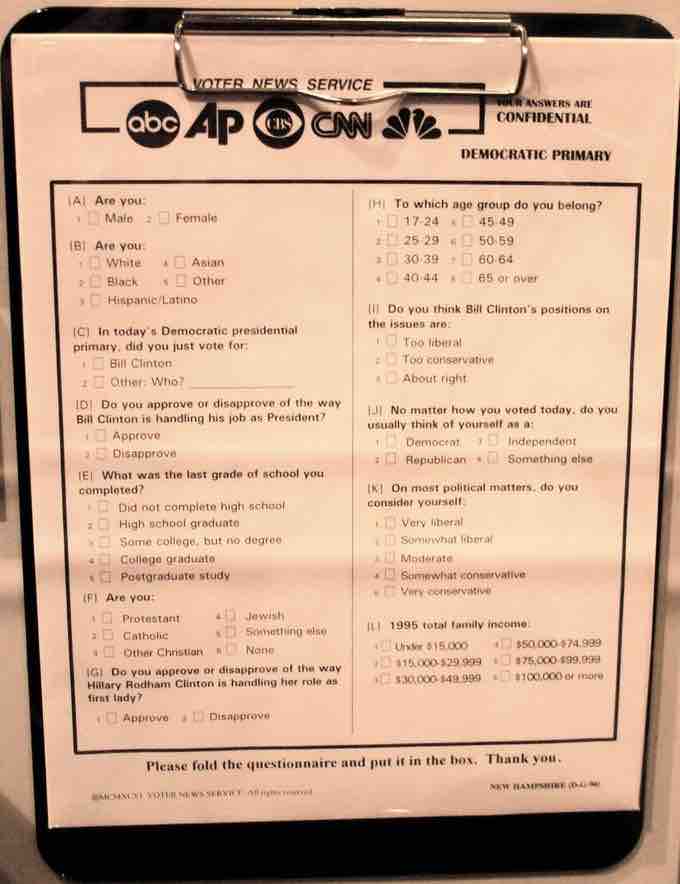Candidates running for election to public office need to appeal to the electorate in order to acquire votes. Accordingly, candidates run campaigns aimed at establishing a popular campaign message and convincing voters of the candidate's likeability.
In many elections, candidates are primarily differentiated by being either liberal or conservative. A candidate's liberal or conservative ideology is usually expressed by affiliation with a political party — in the U.S. the Republican Party is understood to be conservative and the Democratic Party is understood to be liberal. A candidate's stated political ideology may be treated as a proxy for their position on a range of policy issues. One's stance on economic regulation, immigration, and abortion, for example, may be inferred from political party membership. In large part, this association is supported by political parties' platforms in the U.S. At the same national convention where parties nominate candidates for president, they formalize a platform enumerating party beliefs and objectives. When a candidate for state or national office affiliates with a party, they are therefore associated with that party's written platform.
Apart from ideology, less explicit factors such as likeability and access to resources impact candidates' campaigns. Likeability refers to whether or not the electorate generally likes a candidate, as measured by opinion polls . Likeability is thought to play a significant role in electoral politics but is difficult to access in campaigns. Politicians may consciously attempt to augment their likeability by donating to charities, telling jokes during speeches, or posing for photos with voters. However, likeability can be difficult for politicians and political strategists to control.

Voter Opinion Poll
Polling agencies conduct surveys of potential voters during election seasons to measure how the electorate ranks the traits of candidates.
A major critique of large scale electoral politics in the U.S. and other democracies is that a candidate's wealth has too much influence in the election's outcome. Modern campaigns usually include television and radio ads, extensive travel, and large organizations of strategists and organizers. Thus, campaigns have become extremely expensive. Major candidates generally need to have immense personal wealth or successful fundraising networks to compete in national campaigns. Therefore, access to monetary resources is an important trait for candidates to possess.